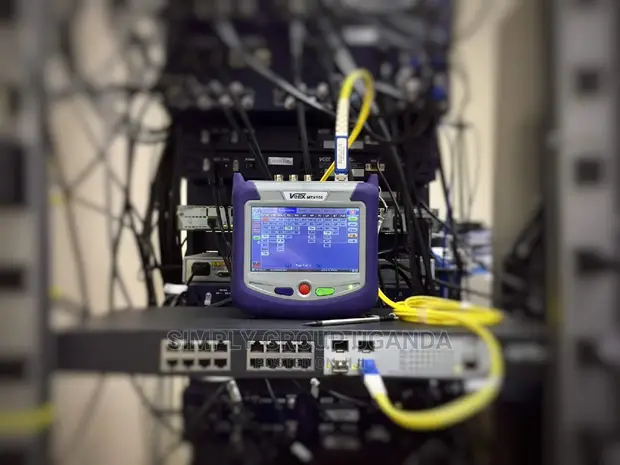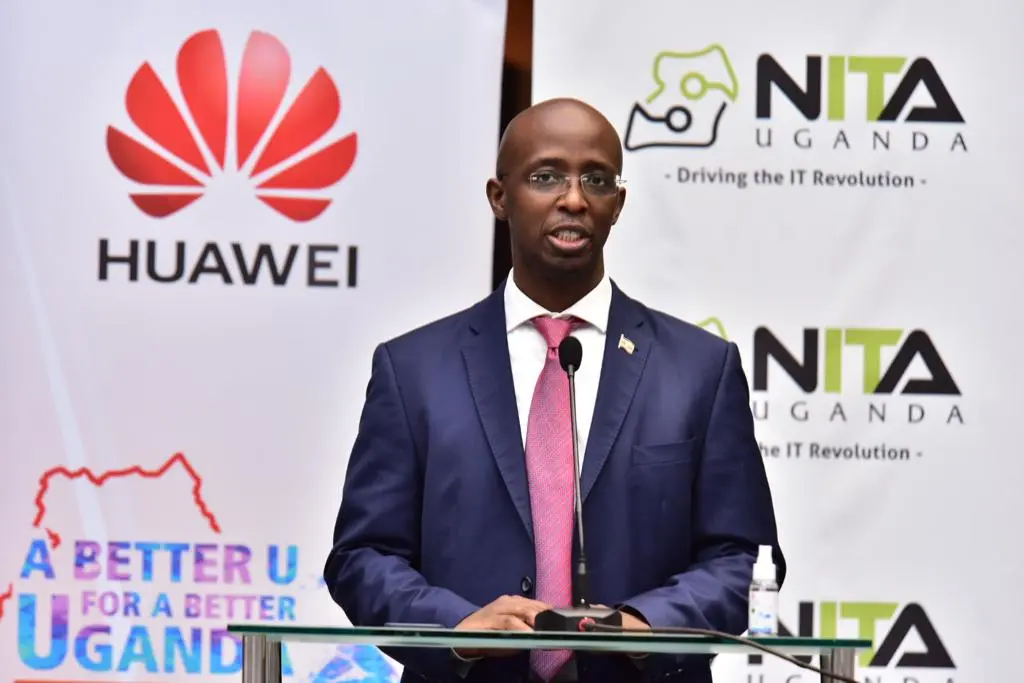Mainstreaming NITA under ICT ministry a critical technical glitch

In the end, technocrats will have to weight their decisions critically to avoid saving the government a few billions of shillings in a merger while incurring huge losses in critical dip in digital transformation of the economy.
ANALYSIS | The proposed streamlining of the National Information and Technology Authority (NITA-U) under the Ministry of ICT could have far-reaching impact on the national digital transformation agenda, legislators have said.
Even before the Parliamentary Committee on ICT scrutinised the National Information Technology Authority (Amendment) Bill, 2024, there were already indications that scrapping NITA and streamlining its functions under the Ministry of ICT would be as good as handing a snail cutlery at the dining table.
NITA's mandate to coordinate, promote and monitor information technology developments in Uganda within the context of national social and economic development puts it at the forefront of concerted efforts toward transforming the livelihood and well-being of Ugandans through the use of ICT to enhance the service delivery.
This also leaves it at odds with the Ministry, whose mandate is largely focused on policy or strategic leadership and supervision.
The NITA Amendment Bill is one of several Bills seeking to give effect to the Government policy for rationalisation of government agencies and public expenditure adopted by Cabinet in February 2021.
The government’s rationale for merging agencies is to achieve institutional harmony, reduce service duplications and overlaps; and reduce administrative costs of service delivery.
 Hatwib Mugasa, NITA Uganda executive director
Hatwib Mugasa, NITA Uganda executive director
The spirit behind this is the emerging socioeconomic and technological developments which have called for the introduction of flat structures that enable MDAs to share common resources as well as have collaborative interactions across the board, while also saving the taxpayer Shs905 billion annually.
Appearing before the ICT Committee led by deputy chairperson Tonny Ayo, both the Minister of State for ICT and National Guidance, Godfrey Baluku, and the Minister of Public Service, Wilson Muruli Mukasa, fell short of convincing the Committee that the Authority should be mainstreamed under their ministry.
This information, shared on Parliament's official website, also says Minister Muruli Mukasa asked for more time to gather all the evidence required to mainstream the agencies.
“We have agreed with the Minister of ICT that we go back and gather all this information and come back. I beg the indulgence of the Speaker,” said Muruli Mukasa.
In Parliament, Bugweri County MP Abdu Katuntu faulted the government for not conducting a study on the rationalisation process before tabling the bills.
At least 36 of the 39 Bills - including that on NITA-U, tabled before the legislators were withdrawn for various reasons, mostly lack of certificate of financial implication.
In its merger plan, the ICT ministry developed a new structure which provided for 265 new positions with the creation of seven new departments of the Ministry.
It said the new structure, combined with NITA, will drop positions by 73 heads to 265 positions.
The wage bill of the Ministry would then be Shs9.4 billion against the total of Shs18.6 billion which would have been the projected wage bill if the entities remained independent.
The government said that it would save an annual total of Shs9.4 billion.
On paper, it all looks like a smart plan. Surely, anyone would preen for that.

But there is always the possibility that two to three months into force, the earlier streamlined 73 positions would not only be filled again but also more will be created to ensure smooth provision of permits, licenses and certifications and other service offerings such as the sale of excess capacity to the private sector players, co-location, internet, leased lines, registration of data controllers and processors, among others.
To underscore the fallacy, the ICT committee said while the Ministry provided block figures in terms of the projected wage bill and the projected savings following the mainstreaming of the Authority, it did not have specific estimates for the revenue and expenditure for the rationalisation.
"The Ministry had stated that the regulatory function of NITA would be transferred to Uganda Communications Commission (UCC)," the report says.
"This was at variance with Clause 11 of the Bill which proposes an amendment to Section 5 to the effect that the Ministry will perform the functions under the Act."
The Ministry had also argued that the revamped Uganda Telecommunication Corporation Ltd (UTCL) and NITA were doing much the same thing due to the commercialisation aspect of the Authority.
Several efforts to speak to NITA for this story were futile but the committee reported the Authority provided memoranda showing that as many as 21 major private telecom and Internet Service Providers (ISPs) are utilising the National Backbone Infrastructure (NBI) that NITA runs to deliver affordable services even to hard-to-reach areas.
Scrapping NITA would mean the transfer of this infrastructure to UTCL. For the private players, it would mean their service is managed by their competitors.
In the business sense, it becomes difficult for major telecoms to subscribe their data operations, for instance, under a direct competitor.
Like the conundrum the private businesses are likely to face when NITA is scrapped, another glaring concern is where the ministry takes to performing the functions of NITA as proposed under Clause 11 of the Bill.
"The Ministry will be playing the roles of policy or leadership strategy, at the same time be the implementing agency and finally have to provide the dispute resolution
mechanism," the report says.
"This defeats the principles of natural justice and will expose the government to even more litigation since there is no dispute resolution mechanism available."
However, the MPs also appeared to exaggerate the impact of the streamlining, saying for instance that it would disrupt critical government systems such as e-migration systems that have enabled seamless issuance of passports, visas and work permits, and the Performance Budgeting Systems and Government Payment Systems.
This is to suggest that the ICT ministry is downright incompetent. Yes, they have failed before in many ways due to bureaucratic tendencies and whatnot.
NITA was established as a result of the government's failure under the Ministry of ICT to implement phases I and II of the NBI.
 NITA processes passports and it is one of the most efficient services in the country
NITA processes passports and it is one of the most efficient services in the country
The failure by the ICT ministry was damning because it was casually implementing critical digital infrastructure that resulted in a non-operational network, a substandard fibre-laying process riddled with inappropriate depth, breakages and sections visible on the ground.
Additionally, there was flawed implementation architecture which contributed to the network's failure.
In a world that is increasingly relying on digital infrastructure for socioeconomic development, the gamble on the dissolution of NITA will have shocked many stakeholders.
Rwanda, a country that prides itself on its ICT development in more ways than propaganda can spell, once attempted a similar gamble even if in their 2017 case involved mainstreaming the Rwanda Information Society Authority to the Rwanda Development Board.
The decision did not last long. Six months in, the Kigali administration decided to reinstate the Rwanda Information Society Authority after realising it was losing out on digital transformation and IT penetration.
"The underscores the importance and critical role that ICT plays not just nationally but globally," the report said as the MPs affirmed their support for rationalisation
"NITA is the only IT business and implementing arm of government and maintaining it as an autonomous entity will enable the consolidation of all public ICT efforts, ensure that the critical and high-value government IT systems that NITA is currently hosting and managing continue to function seamlessly while also eliminating duplication."
The big call for the government's merger quest is now on whether the need to save some billions of shillings through mainstreaming an Authority like NITA outweighs the benefits of keeping it semi-autonomous.
In the end, technocrats will have to weigh their decisions critically to avoid saving the government a few billion shillings in a merger while incurring huge losses in critical technical glitches occasioned by a dip in the digital transformation of the economy.













